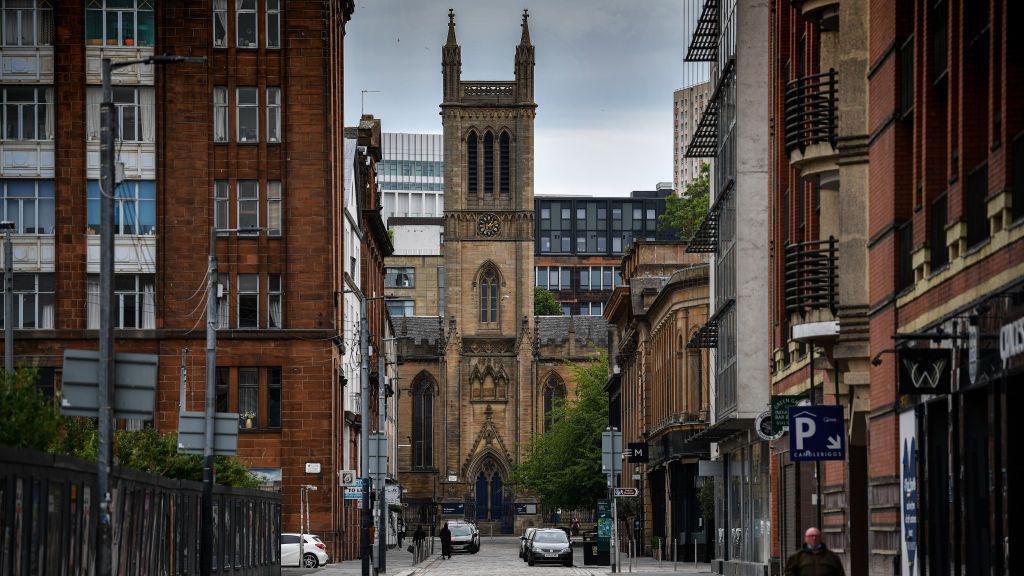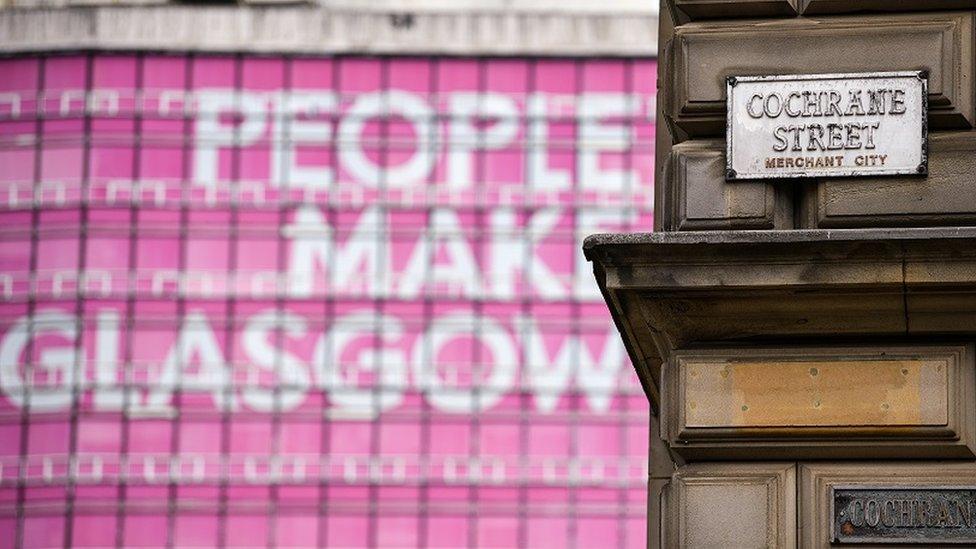Slavery and colonial trail to be launched in Glasgow

Glasgow has 62 streets and locations with historic connections to slavery, including in the Merchant City
- Published
A slavery and colonial trail is to be launched in Glasgow next year.
The trail aims to ensure the city's role in the slave trade continues to be "acknowledged, understood and remembered", according to a council paper on the move.
The city has 62 streets and locations with historic connections to slavery – including Buchanan Street – as well as a number of buildings, while eight figures linked to the trade are also commemorated across monuments in the city.
However, previous discussions about renaming streets and removing some statues will not be taken forward currently, according to the council.
In 2022 the council issued an apology on behalf of the city to the descendants of enslaved people and the nations affected.
Glasgow was a major trade route for sugar and tobacco for the slave states of America and the West Indies.
The new trail is proposed to begin in spring 2026 and would be funded by the local authority's City Stories Fund.
A council paper said there was support for "providing a fuller context around this chapter of Glasgow's history, through improved interpretation around the city's-built heritage".
It added: "This will now be progressed in a new slavery and colonial legacy trail."
Officers from Glasgow Life and the chief executive's department will set up a working group to oversee the development of the trail.
The information used will be based on research by Dr Stephen Mullen, a lecturer at the University of Glasgow.
The paper on the plan will be presented to Glasgow's wellbeing, equalities, communities, culture and engagement city policy committee next week.
Related topics
- Published9 June 2020

- Published26 October 2018
